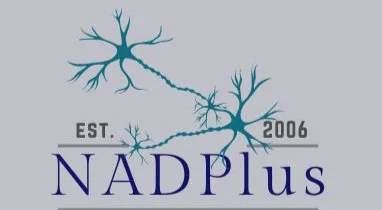NAD⁺ and Its Role in Metabolism and Weight Management
Nicotinamide adenine dinucleotide (NAD⁺) is a coenzyme present in all living cells, playing a central role in metabolic processes. As a key factor in converting food into energy, NAD⁺ is essential for maintaining healthy cellular function, energy production, and metabolic balance. Recent research has drawn attention to its potential benefits in supporting weight management, particularly through its effects on mitochondrial function, insulin sensitivity, and fat metabolism.
Why NAD⁺ Matters
As we age, NAD⁺ levels decline naturally. This reduction can lead to a slower metabolism, increased fat accumulation, and a greater risk for metabolic disorders such as obesity and type 2 diabetes. NAD⁺ influences a group of proteins called sirtuins, which regulate energy usage, fat storage, and cellular repair. Enhancing NAD⁺ levels may help counteract these age-related declines and support more efficient energy metabolism.
Scientific Evidence Supporting NAD⁺ Supplementation
A meta-analysis published in Frontiers in Nutrition (Zhang et al., 2022) reviewed clinical and preclinical trials involving NAD⁺. The findings suggest that supplementing can improve metabolic markers, including reductions in body weight, improved insulin sensitivity, and better lipid profiles. These changes support the idea that NAD⁺ repletion can help address obesity-related metabolic dysfunction.
Another study in Cell Metabolism (Trammell et al., 2016) demonstrated that the boost in NAD⁺ with supplementation was associated with enhanced oxidative metabolism, suggesting potential benefits for energy production and fat utilization, both of which are important for weight management.
Further support comes from research published in Nature Reviews Molecular Cell Biology (Choudhury et al., 2019), which highlights the role of NAD⁺ in regulating sirtuins. These proteins influence how the body responds to nutritional and energetic stress, such as during fasting or calorie restriction. By activating sirtuins, NAD⁺ helps improve mitochondrial efficiency, reduce inflammation, and enhance the breakdown of fatty acids.
Practical Implications
Raising NAD⁺ levels can be approached through both lifestyle strategies and supplementation. Exercise, intermittent fasting, and adequate sleep are all associated with natural increases in NAD⁺. Supplementation of NAD⁺ therapy offers another route and is being explored for its therapeutic potential in metabolic conditions.
While NAD⁺ supplementation is not a standalone solution for weight loss, it appears to support key biological functions that contribute to healthier metabolism and energy balance. Individuals considering NAD⁺ therapy should consult with a healthcare provider to evaluate whether it's appropriate for their health goals.
